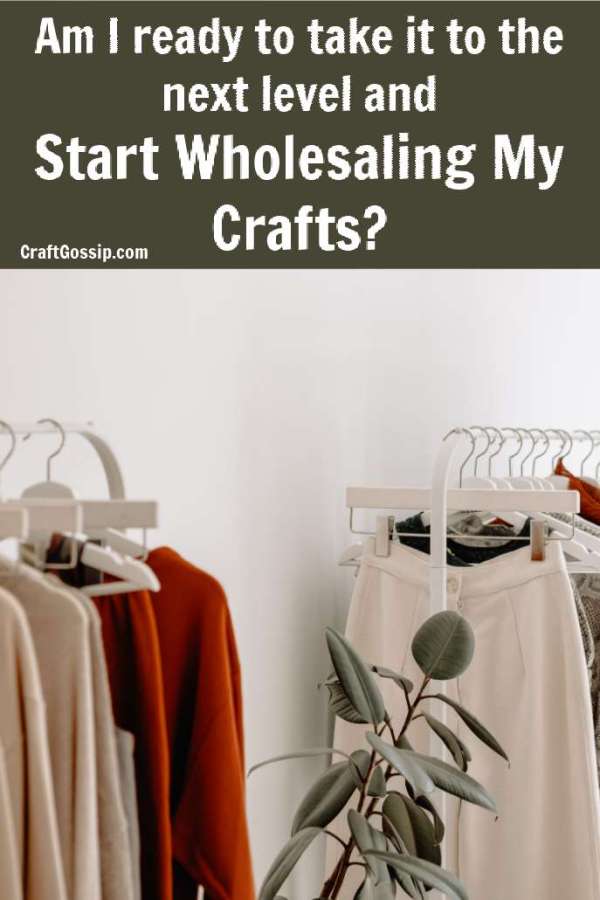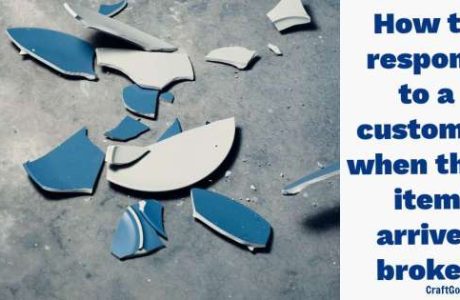
So, you’re running a successful handmade business and you’re wondering, “Am I ready to take it to the next level and start wholesaling my crafts?” It’s a big decision that requires careful consideration and planning. But don’t worry, I’m here to share my personal anecdotes and give you some guidance on whether or not wholesale is the right choice for you.
First things first, let’s talk about what wholesale means. Wholesale is when you sell your products in bulk to retailers who then sell them in their own stores. It’s a great way to reach a wider audience, increase sales, and establish a consistent revenue stream. However, it also requires a significant investment of time, money, and resources.
When I first started considering wholesale, I was excited about the prospect of expanding my business and reaching more customers. But I quickly realized that it was a whole different ballgame. Wholesale requires a lot of work upfront, from creating a wholesale line sheet to establishing relationships with potential buyers.
One of the first things to consider is whether or not you have the capacity to handle the increased demand. Wholesaling requires producing a larger volume of products and meeting tight deadlines. Can you keep up with the production and shipping timelines while still maintaining the quality of your products?
Another important factor to consider is your pricing strategy. Wholesale prices are typically lower than retail prices, so you’ll need to ensure that your profit margins are still viable. It’s important to factor in the cost of materials, labor, and overhead when determining your wholesale prices. Don’t undervalue your work just to make a sale.
Additionally, you’ll need to have a solid understanding of your target market and the retail landscape. Who are your ideal buyers and where do they shop? Researching potential buyers and their needs will help you tailor your wholesale line sheet to their specific requirements.
When I first started wholesaling, I made the mistake of targeting retailers who were not a good fit for my products. I quickly learned that it’s better to focus on building relationships with buyers who share your brand values and aesthetic.
Another key consideration is your production process and supply chain. Do you have the capacity to scale up production while maintaining quality control? Are your suppliers and materials reliable and sustainable? These are important questions to ask yourself before committing to wholesaling.
One thing I’ve learned is that communication is key when it comes to wholesaling. Establishing clear and open communication with your buyers is crucial to building long-term relationships and ensuring their satisfaction. Make sure you have a clear understanding of their requirements, timelines, and expectations.
Finally, it’s important to be prepared for the financial investment required for wholesaling. You’ll need to invest in marketing materials, trade shows, and possibly even hiring additional staff to handle the increased demand.
In conclusion, deciding whether or not to wholesale your handmade business is a big decision that requires careful consideration and planning. It’s important to assess your capacity for increased demand, pricing strategy, target market, production process, communication, and financial investment.
Wholesaling can be a great way to grow your business and reach a wider audience, but it’s not for everyone. It requires a lot of work upfront and ongoing commitment. So, take your time, do your research, and make a decision that’s right for you and your business. And remember, no matter what you choose, stay true to your brand values and continue to create with passion and purpose.
So how do you know if you are ready to go Wholesale? Here are 5 signs.
Demand for your products is consistently high: One sign that you could turn your handmade business into a wholesale business is if there is consistent demand for your products. If you find yourself struggling to keep up with orders and receiving multiple inquiries from retailers and other potential wholesale customers, it may be a sign that it’s time to consider scaling up your business.
You have the capacity to produce your products at a larger scale: Another sign that you could turn your handmade business into a wholesale business is if you have the capacity to produce your products at a larger scale. This means that you have the resources, such as a larger workspace, additional staff, and equipment, to increase your production volume without sacrificing quality.
Your products have a unique and marketable niche: If your handmade products have a unique and marketable niche, such as being eco-friendly, locally-sourced, or culturally significant, it may be an indicator that there is a strong demand for your products in the wholesale market. This can help set your business apart from competitors and attract retailers who are looking for unique and socially responsible products to offer to their customers.
You have established a strong brand and customer base: If you have established a strong brand and customer base for your handmade business, it may be easier to make the transition to the wholesale market. This is because you already have a loyal following of customers who are interested in your products and are likely to recommend them to others. Additionally, having a recognizable brand can help attract the attention of retailers who are looking for products that align with their own brand values.
You have researched and understand the wholesale market: Finally, a sign that you could turn your handmade business into a wholesale business is if you have researched and understand the wholesale market. This includes understanding how pricing, minimum order quantities, and shipping terms work in the wholesale market, as well as understanding how to effectively market your products to retailers. This knowledge and understanding can help you make informed decisions and navigate the wholesale market with greater ease and success.
Here are some FAQs to consider when turning your handmade business into a wholesale business.
- What is wholesale? Wholesale is the sale of goods in bulk, often at a discounted rate, to retailers who then sell those products to consumers. As a wholesale business, you would be selling your products to retailers, rather than directly to individual customers.
- What are the benefits of wholesaling my handmade products? Wholesaling can offer a range of benefits for your handmade business, including the ability to reach a larger audience, increase sales volume, and build relationships with retailers who can help promote your brand. By selling your products in bulk to retailers, you can also streamline your production and shipping processes.
- How do I determine my wholesale prices? Determining your wholesale prices can be a complex process that involves analyzing your costs, determining your profit margins, and researching the market to determine what similar products are selling for. It’s important to ensure that your wholesale prices are competitive while still allowing you to make a profit.
- How do I find retailers to sell my products? Finding retailers to sell your products can involve attending trade shows, reaching out to stores directly, or using online marketplaces such as Etsy Wholesale. It’s important to research potential retailers to ensure that they align with your brand and target audience.
- How do I create a wholesale catalog? A wholesale catalog is a key tool for presenting your products to potential retailers. It should include product descriptions, pricing, minimum order quantities, and any relevant information about your brand and production processes. You can create a physical catalog or use digital tools such as PDFs or online platforms like Shopify.
- What are the payment terms for wholesale orders? Payment terms for wholesale orders can vary, but it’s common for retailers to pay a percentage upfront and the remainder upon delivery of the goods. It’s important to establish clear payment terms in advance to avoid any misunderstandings or disputes.
- How do I manage the increased production demands of wholesaling? Wholesaling can involve significantly larger production runs than selling directly to individual customers, so it’s important to ensure that you have the resources and capacity to meet the increased demand. This may involve hiring additional staff, investing in equipment, or outsourcing production to a manufacturer.
- How do I ensure the quality of my products remains consistent when producing in larger quantities? Maintaining consistent quality is essential for building a successful wholesale business. This may involve developing production processes and quality control measures, working closely with manufacturers or suppliers, and conducting regular quality checks.
Turning your handmade business into a wholesale business can be an exciting and rewarding step, but it’s important to approach the process with careful planning and research. By addressing these common FAQs and seeking guidance from experienced wholesalers, you can build a successful and sustainable wholesale business that takes your handmade products to the next level.





Leave a Reply